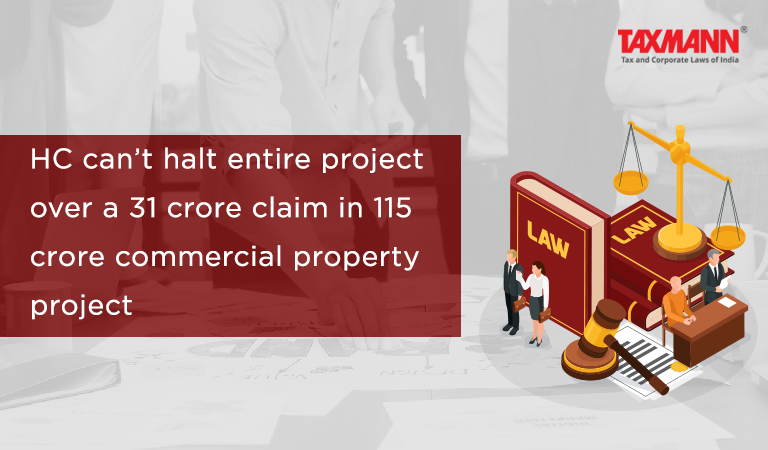
Case Details: Developer Group India (P.) Ltd. v. Surinder Singh Marwah - [2023] 146 taxmann.com 477 (SC)
Judiciary and Counsel Details
- B.R. Gavai & Vikram Nath, JJ.
Facts of the Case
In the present case, respondents Nos. 1 and 2 decided to invest in a commercial project on the representation of one of the directors of respondent No.3 Company. The project, however, ran into trouble and the construction was stalled. Neither the possession was offered nor was the assured return or the interest thereon given to respondent Nos. 1 and 2.
The respondent Nos. 1 and 2 filed a winding up petition before the High Court against respondent No. 3 Company. Later, vide order of the High Court, respondent No. 3 Company went into liquidation. Consequently, through various charge sheets and FIRs, it was also alleged that huge sums of money were diverted, defalcated and siphoned off from the corpus of respondent No. 3 Company.
The appellant herein was a 100% FDI Company. A development and management agreement was entered into between the appellant herein and a consortium of six land-owning companies, for exclusive developmental rights over 11 properties. Neither the appellant nor the consortium of six land-owning companies were originally parties to the winding up proceedings.
The Respondent Nos. 1 and 2, based on the strength of the aforesaid charge sheet, preferred an application in the winding up proceedings to injunct the consortium of six companies from transferring, selling or alienating the 11 properties.
It was alleged that the respondent No. 3 Company had siphoned off the monies to four intermediate companies, who, in turn, further transferred the money to the consortium of six land owning companies. These six land-owning companies were, allegedly, related party Companies of respondent No. 3.
The learned Single Judge of the High Court by interim order restrained the transfer, selling or alienating of 11 properties purchased by a consortium of six landowning companies. Aggrieved by the same, the appellant preferred applications for vacation of the interim orders.
Supreme Court Held
The Hon’ble Supreme Court observed that while passing an order of injunction, the Courts are required to be guided by the principles of prima facie case, the balance of convenience and irreparable injury.
The Apex Court was of the opinion that if the Division Bench of the High Court found that, there was a prima facie case in favour of the respondent Nos. 1 and 2, they could have passed an appropriate order to protect the interests of the said respondents rather than stalling the entire project.
The post HC can’t halt entire project over a 31 crore claim in 115 crore commercial property project appeared first on Taxmann Blog.
